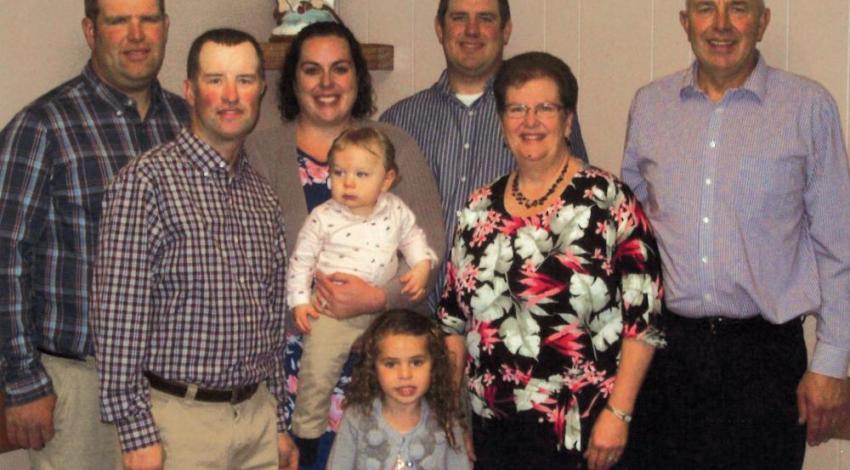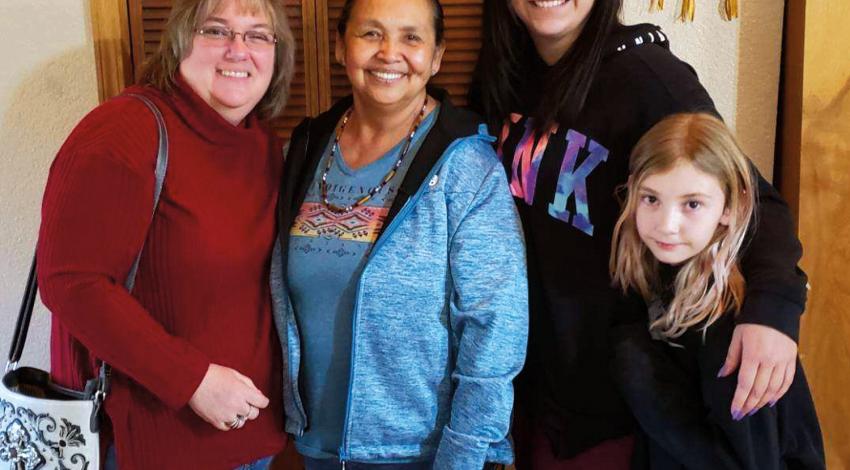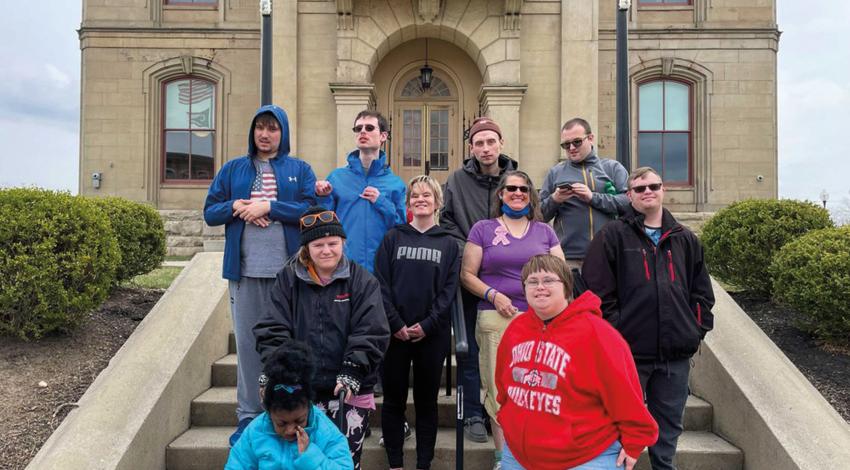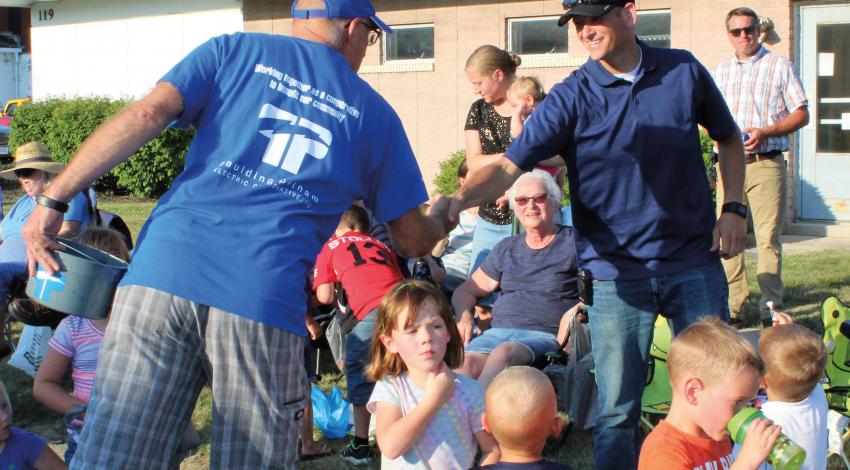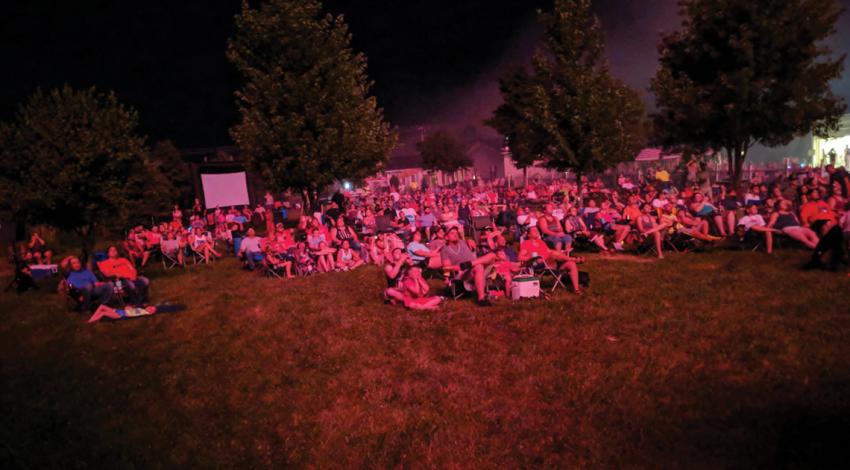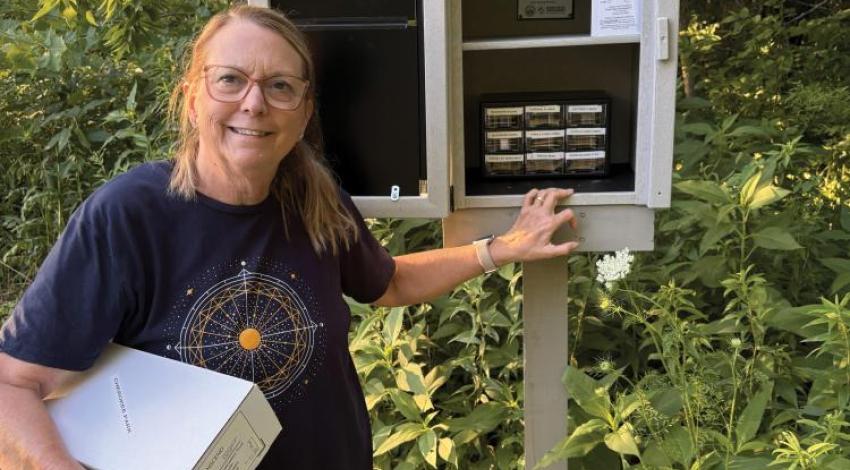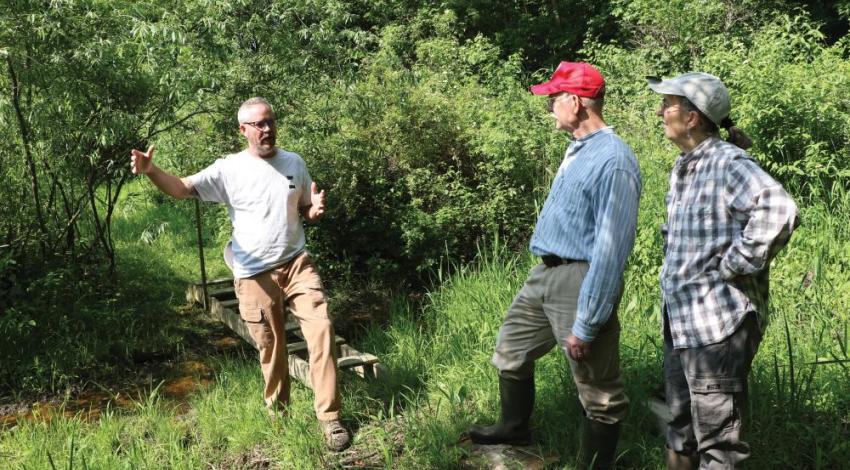Community
The integrated electric network that brings power to your home or business is a technical marvel. That network manages the flow of electrons, traveling at the speed of light, from the massive generation stations that produce them to towns and cities, to homes and businesses across the country.
Much of what makes this system work goes unnoticed. Of course, everyone sees the poles, wires, and transformers that connect every neighborhood up and down nearly every roadway, or the few large generating stations that produce the power we distribute.
We all take a trip down memory lane once in a while, reminiscing about special times and meaningful life events.
That experience helped her realize two things: first, that she proudly came from a long line of strong, influential women; second, how important it was to engage with her grandmother, listen to her story, and record her family history before it was lost forever. “Listening is good for all of us,” Sanders says. “When they tell their story, it gives them purpose. There’s a reason they’re here.”
The sounds of high-pitched laughter and delighted squeals fill the air on this late-spring Saturday afternoon at Carthagena Park in rural Mercer County as youngsters scramble over brightly colored playground equipment.
From celebration to tragedy
Not far from the park, the boys’ mother, Nancy Wuebker, sits in her kitchen at GBT Family Farm, in the heart of Midwest Electric co-op territory. She recalls the events of Aug. 10, 2021, that forever changed the lives of her family and the close-knit farm community they call home.
Each year, I try to look ahead to the opportunities and challenges that appear to be on the horizon for Ohio’s electric cooperatives. While the topics I’ve highlighted have been important, my views on the future have been overwhelmed by events that “stole the show” in recent years. In 2020, COVID dominated our daily lives, but it was unheard of as I put together my list for that year.
When people are dealing with natural disasters, loss of loved ones, addiction, or any of a number of traumatic life events, they often find themselves in need of spiritual guidance.
Elder lives in Knox County, where she’s a member of The Energy Cooperative of Newark. She leads a worldwide team of nearly 1,000 board-certified volunteer chaplains trained to provide mental, emotional, and spiritual support, counseling, addiction and recovery services, and critical incident support wherever they’re needed. They might once have been victims themselves, or they could be first responders — law enforcement, fire, and emergency services personnel.
Jennifer Thornburgh, a member of Bellefontaine-based Logan County Electric Cooperative, hadn’t really thought much about the few pennies she added each month to her electric bill.
As it turns out, Thornburgh’s donation — an average of $6 per year, a few nickels and dimes at a time — helped LCEC boost a program that helped her own family. One of LCEC’s Operation Round Up grants helped RTC Industries in Bellefontaine to provide a transition program for young adults with developmental disabilities.
George Carter spent 17 years working in the electric cooperative industry before he became president and CEO of Paulding Putnam Electric Cooperative in Paulding in 2005.
The 24 electric cooperatives that power rural Ohio are focused on improving quality of life for co-op members and ensuring the long-term prosperity of the communities they serve. That focus, employees say, is what makes cooperatives different from other workplaces. When a team is focused on a common goal, especially one that makes a positive impact on communities they love, it often results in fulfilled employees.
It’s not unheard of, in fact, for someone to spend their entire career with the same co-op.
What started out as a little backyard celebration just outside the village of Fletcher in Miami County nearly 20 years ago has evolved into an event that everyone can enjoy.
Even their “humble” beginning wasn’t all that insignificant; the event drew between 100 and 150 agricultural business contacts, family, friends, and neighbors. But now, the event has grown to several thousand in attendance — and that doesn’t even include those who watch the show from neighboring private parties or from safe parking spots nearby.
“Ultimately, we do this to make people happy, especially those in our community,” Mike says. “You don’t do this for the money — you do this because you want to make those people happy. That, to me, is the challenge.”
Electric cooperative communities are some of the best places in America to call home. We have majestic landscapes, deep-seated values, and a sense of connectedness like no other.
Some people may be wary of giving their name and information to yet another list. The last thing anyone needs is more junk email clogging their inboxes or more spam phone calls. But Voices for Cooperative Power is not junk mail. And members’ information will never be sold or given to anyone outside of the electric cooperative network.


